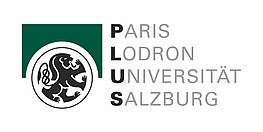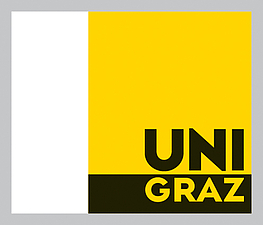Quasi-Monte Carlo Methods: Theory and Applications
FWF Special Research Program (SFB)
Project Part Leaders
The principal investigators of the SFB are the project part leaders. They are supported in their research by a group consisting of Posdocs, Ph.D. students and student collaborators.
The project leaders are:
| Name | Research institution | Position |
|---|---|---|
| Michael Drmota | Technische Universität Wien | Project Part Leader |
| Peter Grabner | Technische Universität Graz | Project Part Leader |
| Peter Hellekalek | Paris Lodron Universität Salzburg | Project Part Leader (until 31.01.2018) |
| Roswitha Hofer | Johannes Kepler Universität Linz | Project Part Leader |
| Peter Kritzer | Johann Radon Institute for Computational and Applied Mathematics (ÖAW) | Project Part Leader |
| Gerhard Larcher | Johannes Kepler Universität Linz | Speaker and Project Part Leader |
| Gunther Leobacher | Karl Franzens Universität Graz | Project Part Leader |
| Friedrich Pillichshammer | Johannes Kepler Universität Linz | Co-Speaker and Project Part Leader |
| Robert Tichy | Technische Universität Graz | Project Part Leader |
| Arne Winterhof | Johann Radon Institute for Computational and Applied Mathematics (ÖAW) | Project Part Leader (until 31.01.2018) |
| Christoph Aistleitner | Technische Universität Graz | Project Part Leader (since 01.02.2018) |
| Aicke Hinrichs | Johannes Kepler Universität Linz | Project Part Leader (since 01.02.2018) |
Michael Drmota (Wien)
Dean of the Institute of Discrete Mathematics and Geometry, Prof. Drmota is author of the standard monograph ''Sequences, Discrepancies and Applications'' (jointly with Tichy), the research monograph on ''Random Trees'' (Springer, 2009) and a large number or research papers on number theory (especially related to the distribution of sequences) and analytic combinatorics. At the moment he especially works on distribution problems of subsequences of digitally bases sequences (related to automatic sequences). Furthermore he studies distributional properties of specific graph parameters in random planar graphs (and related graph classes).
Peter Grabner (Graz)
Univ.-Prof. Grabner works at the Department of Analysis and Computational Number Theory. He is the author of the extensive article "The Dynamical Point of View of Low-Discrepancy Sequences'' (together with Hellekalek and Liardet) which provides an excellent overview of quite recent trends and new techniques in the analysis of quasi-random point sets, in particular from the point of view of dynamical systems. In recent years his research group successfully tackled the problem of constructing well-distributed point sets on compact manifolds, especially on the d-sphere, and he will integrate this important topic into the SFB. Grabner was awarded with the "START-prize" and led the START project "Concrete Mathematics: Fractals, Digital Functions, and Point Distributions". At the moment he especially works on geometric properties of spherical designs.
Peter Hellekalek (Salzburg)
Univ.-Prof. Hellekalek works at the Department of Mathematics of the University of Salzburg. He is an editor of the Springer Lecture Note issue "Digital Point Sets and Sequences'' (jointly with Larcher) and author of a number of research papers on topics related to uniform distribution measures and on theoretical and applied aspects of pseudo-random number generation. Quite recently (with Grabner and Liardet) he gave an extensive overview of recent trends and new techniques in the analysis of quasi-random point sets from the point of view of dynamical systems, "The Dynamical Point of View of Low-Discrepancy Sequences''. At the moment, he is concentrating on p-adic aspects of the theory of uniform distribution of sequences.
Roswitha Hofer (Linz)
Dr. Roswitha Hofer works at the Institute of Financial Mathematics and Applied Number Theory of the University of Linz. She is a young, very productive and utmost creative researcher. In various remarkable papers she has, e.g., introduced the concept of digital sequences generated by finite-row-matrices, and she has provided important contributions to the theory of Halton-Niederreiter sequences. At the moment she is working on new constructions of low-discrepancy sequences, properties of finite-row sequences, and hybrid sequences.
Peter Kritzer (Linz)
Priv.-Doz. Dr. Peter Kritzer works at the Institute of Financial Mathematics and Applied Number Theory of the University of Linz. He is a young, utmost creative and productive researcher. He has already published more than 35 research articles in international journals and he received the 2011 Information-Based Complexity Young Researcher Award. At the moment he is working on the analysis of hybrid point sets, the efficient construction of polynomial lattice points, and numerical integration and approximation of analytic functions.
Gerhard Larcher (Linz)
In addition to being head of the Institute of Financial Mathematics and Applied Number Theory of the University of Linz, Prof. Larcher is the speaker of this SFB. He is editor of the Springer Lecture Notes book "Digital Point Sets and Sequences'' (jointly with Hellekalek). He is the author of numerous research papers on theoretical as well as applied aspects of QMC methods. At the moment he is working on questions concerning the discrepancy of hybrid point sets and sequences, and related questions arising from these investigations, e.g., distribution of weighted sums of digits, certain questions in Diophantine approximation.
Gunther Leobacher (Linz (01.02.2014-31.01.2017)/Graz(since 01.02.2017))
Univ.-Prof. Dr. Gunther Leobacher is working both in mathematical finance as well as on QMC-methods. He has made very interesting contributions towards the subtle application of QMC-methods in various branches of quantitative fi nance and to suitable adaptions of QMC-models to application problems. His role within the SFB is extremely important with respect to the application of QMC methods and their efficient implementation. Leobacher is a very creative researcher, with the ability to inspire young colleagues and Ph.D. students. He received an Erwin Schrodinger grant in 2002 and the Christian-Doppler Award for Sciences in 2011. In 2016, he got a call as full professor of mathematics at the University Graz.
Friedrich Pillichshammer (Linz)
A.Univ.-Prof. Dr. Friedrich Pillichshammer works at the Institute of Financial Mathematics and Applied Number Theory of the University of Linz and is the co-speaker of this SFB. He is a specialist in several aspects of QMC, e.g., the theory of polynomial lattice rules, the analysis of digital nets and sequences, and the field of tractability theory. He received the Research Award of the Austrian Mathematical Society in 2006, the Journal of Complexity Best Paper Award 2005 (for the joint paper with Josef Dick), and the 2005 Information-Based Complexity Young Researcher Award. He is the author of approximately 90 research papers and he is well-known for the standard monograph "Digital Nets and Sequences. Discrepancy Theory and Quasi-Monte Carlo Integration'' (together with Josef Dick), which is an comprehensive, and up-to-date treatment of trends and developments in the field. At the moment he is working on polynomial lattice integration rules, integration of analytic functions, new concepts of tractability, and on hyperplane nets and sequences, which can be viewed as generalizations of polynomial lattice point sets.
Robert Tichy (Graz)
Head of the Department of Analysis and Computational Number Theory of the University of Graz, Univ.-Prof. Robert Tichy is author of the standard monograph "Sequences, Discrepancies and Applications'' (jointly with Drmota).
He is the author of more than 200 research papers, many of them focusing on theoretical and applied aspects of QMC methods. His research interests include Diophantine equations, combinatorial and asymptotic analysis, arithmetic dynamics, uniform distribution and discrepancy. At the moment he especially works on limit theorems for discrepancy and related measures of pseudo randomness. Furthermore he is interested in applications of QMC methods in financial and actuarial mathematics.
Arne Winterhof (Linz)
Univ.-Doz. Dr. Arne Winterhof works at the Johann Radon Institute for Computational and Applied Mathematics. He is one of the worldwide leading experts in the field of generation and analysis of pseudo-random numbers, and in techniques for the analysis of exponential sums. He is the author of more than 120 research papers, among them numerous articles on pseudo-random numbers and uniform distribution. He received the Hlawka Award 2004 and the Research Award of the Austrian Mathematical Society in 2010. At the moment he is working on measures of pseudo-randomness in view of applications to numerical integration, cryptography, and wireless communication.
Christoph Aistleitner (Graz)
Over the last years, Christoph Aistleitner has emerged as one of the world's leading experts on probabilistic methods in number theory, theory of uniform distribution, complexity theory, and QMC-methods. Aistleitner received a "Schrödinger-Stipendium" of the FWF in 2013. In 2015, he was awarded the START-Prize which is the most important Austrian research-award for young researchers, and in the same year he also received the Research Award of the Austrian Mathematical Society. Today Aistleitner holds a tenure track position at the TU Graz. He already played a central role in the fi rst period of the SFB, as guest researcher of the SFB, and as co-author of several very important publications within the SFB. Aistleitner is an outstanding researcher, with interests and competences in many elds of mathematics (most notably harmonic analysis, stochastic methods, additive combinatorics, analytic number theory).
Aicke Hinrichs (Linz)
Univ.-Prof. Dr. Aicke Hinrichs is head of the Institute of Analysis at the University Linz since 2014. He is one of the top-experts in QMC-methods worldwide, and he will significantly strengthen the SFB team. He has provided ground-breaking work in the fields of complexity theory, Banach space geometry, functional analysis, and discrepancy theory. He achieved the "Prize for Achievement in Information Based Complexity", two "Best Paper Awards of the Journal of Complexity" and he is senior editor at the Journal of Complexity.







